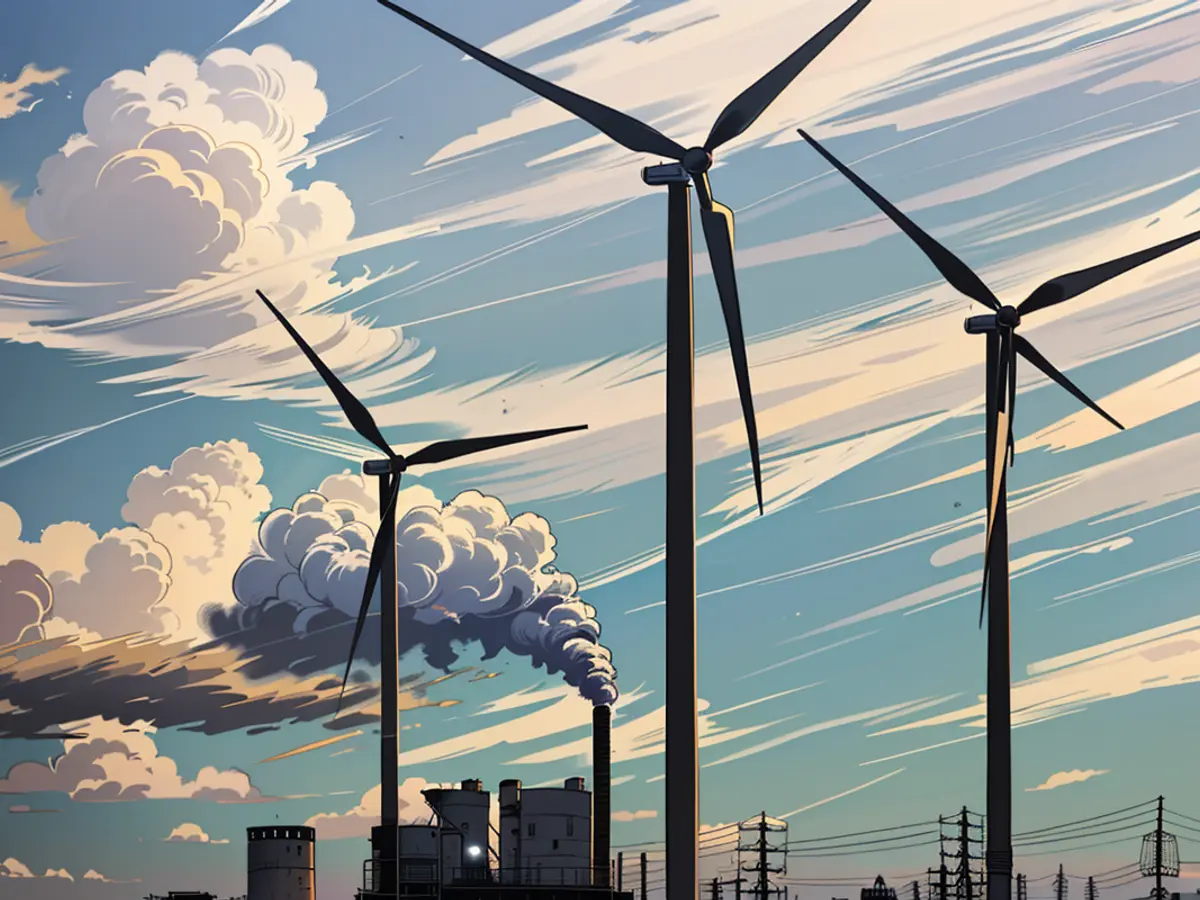Altering the framework - The government aims to offer more specific aid to coal-dependent areas.
The Bund plans to broaden the remit of government financial aid programs in ex-coal areas to hasten the structural changeover. Companies can now also obtain direct funding for business setups. For example, finance should be provided for the development of the solar industry, revealed Economic and Climate Protection Minister Robert Habeck (Greens) on Monday at Brandenburg's Bad Saarow during the East German Economic Forum.
Is a sooner coal phase-out in the east on the cards?
A report from the Economic and Climate Protection Ministry underlines that the predetermined extraction from coal-based energy production by 2038 remains unchanged in the east. "The federal government will not pursue any political endeavors to alter this legal deadline." Conversely, predefined departures preceding 2038, as well as state and regional measures, will remain uninfluenced.
The rationale is that the proposed reform of the European Emissions Trading System (EU ETS) is intended to make coal-powered generation less profitable. Furthermore, the report points to the ongoing expansion of renewables and the planned construction of new gas power plants that can be converted to hydrogen - and the provision for accelerating the coal exit to 2035.
The document states: "If the coal-fired power generation already phases out significantly prior to 2038 and the withdrawal also occurs earlier in the eastern coal regions, it is vital to facilitate the transition as effectively as possible."
For the Rhineland region, both politics and energy firm RWE have reached an agreement to phase out coal by eight years, to 2030.
Habeck proclaimed at the start of 2023 that a modified coal exit to 2030 in the east would require an amicable agreement. "This will not be dictated, but rather regarded as a viable plan by a broad coalition."
The federal authorities are investing billions of euros in supporting the restructuring of the coal-based regions. Multiple public undertakings and infrastructure investments are ongoing in the coal regions, according to the statement. Nevertheless, there had been a scarcity of possibilities up to this point to specifically endorse innovations and ventures by firms focusing on novel transformation technologies.
This is about to change: The federal government will help future business setups with direct investments - for instance, the establishment of production facilities for the manufacture of batteries, solar panels, wind turbines, or heat pumps. This should invigorate the local economy, decelerate dependence on fossil energy carriers, and expedite industrial transformation.
Habeck remarked that thus far, financial support has been tied to infrastructure construction. Currently, the federal administration is fulfilling a request from the regions by introducing new possibilities. Firms wish to establish their operations, and money is available, which will not be squandered - "because the 12 'Bush-house' replications are no longer necessary. There is money, there are businesses. Now we must connect them."
The ministry proposes extending the durations of funding programs and allows unspent funds from one project to be used up to three years after the end of the financing period. Also, the federal program "STARK" should be expanded in consultation with the states. In order to enhance transportation infrastructure in the areas, planning for already approved railway projects should be initiated, including the expansion of the Berlin-Görlitz line.
Read also:
- Under the proposed changes, the Federal Government's support program will have a broader scope in ex-coal regions, aiming to hasten the Coal phase-out and facilitate Structural change.
- Robert Habeck, the German Economic and Climate Protection Minister, revealed plans to provide financing for the development of the solar industry in coal regions, such as Bad Saarow.
- Despite the report stating that the legal deadline for coal extraction in the east remains unchanged by 2038, there's a call for effective transition support in the event of an earlier Coal phase-out.
- The federal government is planning to directly invest in future businesses in coal regions, such as battery, solar panel, and wind turbine production facilities, to stimulate the local economy and decrease dependence on fossil energy carriers.
- To expedite the Coal phase-out and Industrial transformation, the Federal Government is considering extending funding program durations, reallocating unspent funds, and expanding the "STARK" program in consultation with the states, along with initiating planning for already approved railway projects, including the Berlin-Görlitz line expansion.








